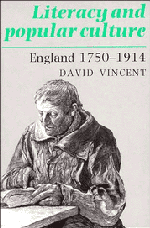Summary
Joseph Mayett was born in 1783, one often children of a farm labourer in the vale of Aylesbury. The poverty of his family caused him to spend his childhood making lace rather than attending school:
however notwithstanding this my mother being able to read and write a little though in some instance hardly legible yet she taught me to read at a very early age I cannot Remember learning the Alphabate but when I was four years of age or there about my Godmother presented me with a new book it was the reading made easy it had many pictures in it which I Remember I was much delighted with this takeing my attention there was nothing suited so well as my book and by this means I was sone able to read it without spelling …
He received further assistance from his grandmother, and from a Sunday school, where he made progress in ‘Learning hard names’; and in his early twenties, whilst serving in the Royal Bucks. Militia against Napoleon, he persuaded a fellow soldier to teach him to write, so that he could correspond with his parents. Over the century and a half covered by this study, Mayett's laborious acquisition of the skills of literacy became an increasingly common experience in English popular culture. In the middle of the eighteenth century, three hundred years after the invention of printing, half the English population could not write.
- Type
- Chapter
- Information
- Literacy and Popular CultureEngland 1750–1914, pp. 1 - 20Publisher: Cambridge University PressPrint publication year: 1989



